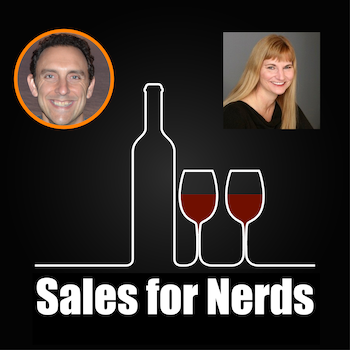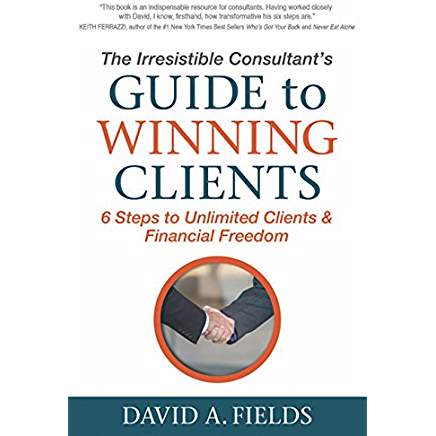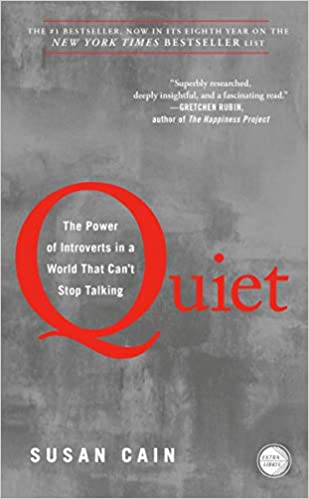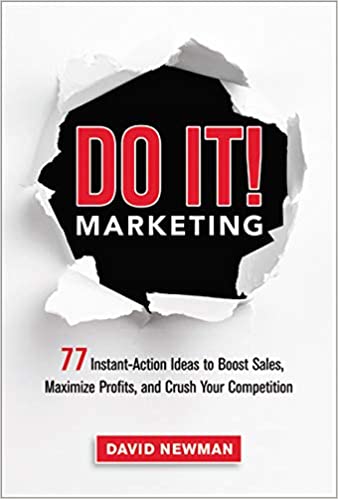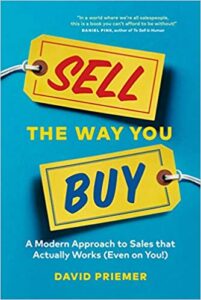Hi Reuben Swartz here your host and chief nerd welcome to Sales for Nerds. I try to distill years of struggling with sales and marketing so you can learn the easy way. Plus get the scoop from other folks who have accidentally ended up in sales and learned that it doesn’t have to suck.
Now, as a software person who hated conventional CRMs, I ended up creating my own for folks like me in professional services who would rather be doing client work than sales and marketing.
It’s got a whole new take on lead magnets to the way to think about conversations and referrals, proposal automation, e-signature. And if you’re the only one in your company selling or maybe the only person in your company, it’s got features so you don’t feel so alone. Start your free trial at www.mimiran.com.
That’s M-I-M-I-R-A-N dot com. And even if you’re not looking for a CRM, you’ll find proposal templates, checklists and more to help you grow your business. Now let’s get to it today.
I’m super excited to have with me David Priemer. He is the author of Sell the Way You Buy, which just sounds like the kind of sells book you actually want to read. Congratulations on that. He’s got a chemical engineering degree and actually started his career with test tubes and differential equations. And then he almost got a sales job at IBM and didn’t and he kind of fell into the startup world, went through, I believe, four different start ups, three of which got acquired. Am I getting that right? You can correct me now. It’s great. And then one of his startups was acquired by Salesforce.
He became a sales leader at Salesforce, which led him to start Cerebral Selling and writing Sell the way you Buy. David, welcome to Sales for Nerds.
Oh, thanks for having me here, Reuben. It’s great to be here.
Excellent. What do you have in your glass?
You know, as I said, we’re we’re in isolation mode here, so I’ve amped up my you think alcohol content, but no, I’ve amped up my my water hydration content. I’m just drinking lemon water today.
That’s that’s got a lot of lemon slices in there. I do a slice of lemon lemon water. This is lemon juice. Well, we’re recording late in the day.
And so what, what tends to put a couple of slices in and then I ran out of water and then I add more water, I add more lemon slices, but I don’t take the old ones out. And then I guess by the end of the day, I just have like a full lemon sitting in a glass with no water.
OK, awesome.
And I’ve got some Châteaux Labadie Bordeaux from Médoc. And this is a merlot driven blend. And I meant to do a bunch of research on Medoc and the blends and the percentages and whatnot before we got on. And I said I’m just going to tell people it’s delicious. And as usual on this show, it’s probably one of those things that I got at Costco for like fifteen bucks. Cheers and welcome.
Well, I think you’ve already done the first lesson of selling, which is as you’ve taken something, you know, that you got at Costco and you made it sound really enticing and very, very elaborate. So that’s lesson number one.
Good for you. All right. Go to Costco, resell wine. You said that’s.
So how did you go from chemical engineering to. I’m writing a book about how to do sales the right way, if you can get that sat down to five or ten seconds.
Yeah, my goodness. Well, you know, sales and engineering are are similar because in engineering there’s like systems and practices and laws and rules and equations that govern how things work.
And it’s not that selling is all science by any stretch. There’s definitely a lot of art to it, but there are rules and there are systems. And so I found that kind of making that transition. I was able to kind of take that very call like analytical, scientific approach to to, you know, my engineering career, being in academia and then translated into the sales world, which, by the way, I got thrust and thrust into you by accident like everyone.
And no one no one purposely makes that transition. But that’s how it happened for me and fell in love with fell in love from there.
You know, it’s funny, you talk about the rules and systems as being the part of engineering that applies to sales. And that’s maybe the part that I’ve always struggled with. The part that I find is the bridge is it’s about problem solving. Right? When you have an engineering problem, you’re trying to solve that in sales. You’re typically trying to solve some kind of business problem. And so I can think of it as well. They’re both problem solving.
What kind of rules did you take from the engineering world into the sales world?
Well, it’s interesting. It’s it’s true that the goal of a buyer is to hopefully solve a problem, or at least that’s the that’s the sense we have a problem when we, like, seek solutions to those problems. There’s people who sell those solutions.
But what I found over the course of time is that we actually don’t buy solutions. I think that’s one of the biggest misnomers. We do not buy solutions to problems we have.
We buy one thing first and foremost, which is feelings in everything that we buy. I don’t care whether it’s be to be buying a service, ordering something for lunch. And I think that great example you talking about systems and rules. So you’re talking about wine. Hey, now, one of the things I talk a lot about is that everything that you say about your product can either increase or diminish its value and think about like, what’s the cost of a bottle of coke?
How much would you pay for a bottle of Coke? What if I were to ask you, how much is a bottle of Coke? How much are you willing to pay for?
That depends if you’re at the grocery store or the ballpark 100 degree day. Right.
There you go. So there’s there’s this element of like, OK, what’s the. Environment, maybe if I’m at an airport or a sporting event, like the value of the Coke is different, but like what if I started telling you like a story know, like our our researchers spent, you know, like, let’s say I’m trying to sell you a bottle of water.
You can go buy a bottle of water at Costco for twenty five cents. But if I told you this, this unique bottle of artesian water was was plucked from like the mountain tops in Fiji and carefully in small batches. Now, all of a sudden, I’m just I’m talking about this water. But all of a sudden now in your mind, you’re thinking, oh, my gosh, this water is like super valuable. And so, like, back to your Costco wine, you can start wrapping an amazing story around that.
And at the end of the day, people aren’t buying the wine. They’re not buying the water. They’re buying the story and the value you’ve created around that product. And it’s no different. So there’s there’s certainly an art to telling that story.
But the idea at the end of the day that we’re buying solutions, I feel is a misnomer. We buy feelings at the end of the day and there’s still rules that govern how those feelings can be bought and sold.
So some folks listening are gonna say, that’s great. I understand how that works if I’m buying wine or buying water. But I deal with these really hard nosed business people and they have spreadsheets and they enter numbers and they tell me I’m too expensive and these people don’t even have feelings.
So. Right.
What do we say to those people? Are they right or their feelings that maybe we’re just missing?
You ever hear the phrase no one got no one ever got fired for buying IBM, right? Yes. What do you think that means? That means people feel secure when they buy IBM, even if everything goes sideways and it’s a disaster, they can’t get fired.
Yeah, or even if that’s true and even if IBM is not the best solution for them. Right. Like, I won’t get fired. So, like what you’re saying in the in the hardest news organizations, when people are biasing towards safety and security and established vendors, those are feelings that has nothing to do with the ability of that solution to solve the problem. You know, it’s a proxy for it. But there could be, let’s say, for example, a tiny startup of five people who has a much better solution to solve your problem.
But if you get it wrong, you’re going to get fired. Right. So now you’re buying feelings.
So a lot of the folks listening to this are more likely to be part of the five person startup than IBM. What are they say to that person or are they just in the wrong room and they should get out? Well, you know, it’s funny.
So as you mentioned, I’ve done for startups in my time over the last 20 years, and I love the startup environment. I just love building things. I almost love the uncertainty a little bit. I love, you know, I love the agility.
And so one of the tactics I talk about in the book, and this is like an objection now we’re getting into like, objection handling. Someone says, you know, Reuben, I love your solution, but I’m just a little wary about working with a company that’s like five people in a garage somewhere.
Right. So now there’s lots of different ways you can respond. And one of the way so I would I would put a couple of things to you. Number one you actually want customers that align with your vision, with your way of doing business.
And so if someone wants IBM, then they’re not a good fit to buy you and you probably should not invest the time to convince them that they are right. So one of the ways you can kind of separate out those customers is to say, look, hey, look, you know, we’re not for everyone. Certainly, you know, it’s interesting.
A lot of our customers love working with us because we’re a five person agile startup because they have access to our product roadmap, our executive team. They can speak to us whenever they want and they love that. Right.
And you’re part of that core and you’re going to love working with us. Right. And so, again, we’re not solving world peace here. But that’s one way it’s I call this turn weakness into strength. You kind of challenge the customer, but you also align them with the kinds of customers that will be most successful with your solution.
And I forget the phrase you use in the book, but you kind of recommend that you can pick a fight with somebody. Right, and make people come down on one side or the other. Either you’re out of our camp and we shouldn’t waste time with you because you need IBM or, hey, you should come over here and hang out with us because we’re not beige and boring like IBM.
It’s true. So I call it polarization. Right. And so the idea is when someone asks you what you do and this is actually it’s not just when you’re handling objections, but even when, you know, let’s say, for example, some you meet someone like what do you do?
And you say, I don’t know, I train salespeople and they smile and they say, that’s nice. And they just go on with their day.
Because the reality is, whatever it is you do, there is a million people that do what you do. Right. And to your customers, you all just kind of sound the same. So one of the ways you breaking out of what I call that sea of sameness is to say something that’s a bit more polarizing, a little different. Right. Something that makes your customer decide whether or not they’re on your side of that argument or another person’s side.
So the example I give and I give in the book, my third startup, this is the one that was acquired by Salesforce. We were a basically a performance review platform for companies that hated performance reviews. Right. So for Millennial, like no one loves, I’m not here to crap on performance reviews, but that’s what we did.
We picked an enemy and our enemy was performance reviews. We said, look, performance, you suck. The data, like all the data coming out of companies, is saying that people use the word hate to describe performance reviews.
So if you love feedback, but you hate performance reviews, we should talk. And and in anything that I just said to you now, I didn’t. And I haven’t even explained what the software actually did.
But if you love feedback or your people love feedback and they hate performance reviews, you’re going to lean in and say, tell me more, because no one’s saying that and I’m invoking your enemy. So these are just really simple ways of getting customers onside with these polarizing messages.
As funny, you say that because my CRM tool is the CRM for people who hate selling. Right. Like who wants a CRM? If you hate selling well, the people who are like, gosh, I hate selling, tell me more. That’s the whole point of that. I mean, that’s it’s all true.It’s all authentic, just like your performance review software was. But but it’s not you’re not describing everything, but you’re sort of letting people associate or disassociate tribally based on what you’re telling them you’re about, right? That’s right.
You know, the idea is that whatever service you provide, you’re not for everyone, OK? You have some very happy customers that align with your mission and values and then some that don’t. And ask yourself what would happen if you started selling to the wrong kinds of customers, like what would happen to your business, to your your pipeline, your cost, your reputation. So the idea is we always want customers that align with what we do. And so the best way to do that oftentimes is to put out like that enemy to help your customers kind of gravitate.
But I totally hear what you’re saying. I actually have a blog post on my website. Called How to sell if you hate selling, that’s probably very relevant because you know a lot of entrepreneurs now this is an interesting thing. So we talked to earlier, one of my favorite sales books is Dan Pink’s To Sell is Human. And he asked people in that book, he said, When I use the word sales are selling, what’s the first word that comes to mind?
And now you don’t have to like you’re talking to the guy here. If you go on my website, the first piece of copy it says is, do you ever wonder why you don’t like talking to salespeople? Right.
And my website is for salespeople. Why would I say that? It’s because I bet that most people don’t like talking to salespeople, including salespeople. And Dan Pink proved that out in his book. And so there’s a lot of entrepreneurs. He talks about this like a lot of entrepreneurs who don’t classify themselves as salespeople but have to do selling in their job. And so the thing is, well, how do you overcome that? That’s a great point.
And I mean, whether or not there’s sales in your title, if you own a small business sales is your responsibility. And even if you spend all day in engineering meetings, there’s a certain amount of persuasion that has to go on if you’re going to do your job effectively. And you’re right, we’ve got all these, I think in some ways deserved bad connotations around selling because we hate being sold.
We like to buy. We want someone to help us buy. And I think in the old days, the salesperson was the repository of information and taking your order, stuff that you couldn’t do on your own. Now we can do all that on our own. And my view of selling is it’s helping us solve a problem that we can’t fix on our own. Right. Okay. So if we can do it on our own, we don’t need the salesperson.
What it’s like when I call my my telco because my home Internet isn’t working and they try to deflect me by saying, you know, a lot of common problems can be rebooted by fixing fix, by rebooting your router and by doing this.
And so what they’re trying to, like, move me out of their process.
And I keep thinking to myself, I wouldn’t be calling you if I if all those things weren’t the case. Right. But, yes, there’s there’s a lot of that where where I wouldn’t be having to engage with a salesperson if I could just do it myself, like if I could just go online and do the research and figure it out and maybe I could. What actually happens, like what the research shows is that because there’s so much choice now, let’s say you want to go online, you want to book a vacation or a flight or whatever it is.
So you say, I want to go to the Caribbean.
Gosh I want to do that right now,
I know it seems like a pipe dream. I want to leave my house now, but so you want to book a vacation. So you go online and say, I want to go to the Caribbean. You do a search and like a million resorts come up and now you’re thinking to yourself, I don’t know which one to pick, OK? They all look like they got four point three stars, which is OK.
And now I start reading the reviews and I start looking at the one star reviews first to see what people hate because I really I’m drawn to that. And then what happens is like an hour, two hours later, I’m like, I don’t know what to do, you know, I don’t, you know. And so what happens is what they refer to as purchase. Like the ease with which I’m able to make my decision is actually compromise. It’s very hard for me to make a decision.
And then when I do, I’m not sure if I made the right one right. And that’s kind of like the old school way of selling.
So you’re right, the purpose of the salesperson is to help the customer kind of work through the decision. But, you know, when you’re when you’re on TripAdvisor, there’s no salesperson there. Right.
And so it’s incumbent upon, let’s say if I was the salesperson for these resorts or even a travel agent. Right. Imagine then I start hitting you up and I say, you know, Reuben, I’m a travel agent. I specialize in working with people who want to go on vacation but are completely bewildered. But I by all the reviews they see online, am I right right now?
I’m not even telling you what my services are, but I’m now I’m talking about the enemy, which is your frustration, researching things online. So anyways, it’s a full circle. These are the all the information that we have access to is actually, in many ways, hurting us.
When there’s a chapter in your book called The Battle for Customer Attention, which I think is so important, and you talk about how we all get these stupid calls and emails and LinkedIn requests that are, to borrow another one of your great phrases, Cobra Kai tactics right there, like slam into, you know, mercy. We don’t care about you. We’re trying to go somewhere. Get out of my way. What should people be doing to get people’s attention? Because if we can’t get people’s attention, we can’t really do much, right? Yeah.
I mean, there’s lots of things and some of it we’ve already spoken about, like talking about the enemy. Right. Because people are so desensitized about being pitched on products and features and what’s new. And eight-Dot-0 like no one cares what’s new in 8.0, but they care about like their enemies, some of the problems that they’re solving. So lead with the problem first and foremost. One of the other things I talk about in the battle for customer attention is just like try using different media.
I mean, people are used to picking up the phone and calling, which is great emails. Great LinkedIn is great. But I’ll tell you, like I get a million emails a day and million LinkedIn invites and everyone just sounds the same. So I remember there was one time in my last VP role where I had a BDR reach out. To me, this is like a business development rep who sent me a letter in the mail and like a handwritten note.
And he said in the note, he said, you know, I think nowadays people don’t respond to voice mails, but the jury’s still out on handwritten notes. And I still to this day, I still remember it because and I got back to him and that’s the beauty, is that if you do it the right way, try, you know, try video calls, write video has a much higher open rate because I waste time watching cat videos on Instagram all day.
But like, I’ll watch Reuben for 60 seconds, make a fool of himself on a video. Right. So it’s a video LinkedIn voice, snail mail. All of the stuff is unique and differentiated. And even if even if they don’t buy your solution in the end, most time they’re going to get back to you because they appreciate the effort you put in.
So other than mixing up the media. What about the actual content of the message itself? Yeah, so the key is a number one, not just two things, not to sound the same as everyone else.
So if I was starting a financial services firm and I said, you know, Priemer Financial, we specialize in providing world class service at very low look like I’m laughing as I’m saying it, like no one’s going to argue that that’s a good thing.
But you just sound the same as everyone else. And I actually I told this guy today on LinkedIn, I get maybe a handful of LinkedIn messages a day saying, hey, David, we specialize in lead generation and we have a unique proprietary method to get you high quality leads. You know, is it worth a chat? And I and I actually engage with these people because I feel it’s partially my duty because, you know, back to the Cobra Kai tactics, if you’re just out there, if salespeople are continuing to be out there and using these, like, horrible old school generic tactics, it’s going to make it really hard.
They’re going to ruin it for everyone.
They’re going to make it really hard for the good salespeople to get their attention. So the first thing is don’t sound the same as everyone else. Right? Lead with the problem. And and one of the other things they talk about is reciprocity, like add some kind of value.
Show me that you did a little bit of research into what I what I did. I actually wrote an article a couple of weeks ago was called Do Your Homework three scientifically proven reasons why it makes sense to do your research before you reach out. And and oftentimes you get these generic outreaches.
And so you talk about how to get people’s attention, do a little bit of research. If I cited a recent thing that you wrote or the city that you live in, or even better yet, like I say, I noticed something on your website. I’ll tell you, like when people find, like, typos in my blog post and they reach out to me, like I feel indebted to them. Right. And so all of these things are are not easy to do, meaning they require efforts.
You can’t be lazy. But the extra effort you put into personalized lead with the enemy, reciprocity, add value, try different medium are all amazing ingredients to help you get your customers attention.
So you’re saying actually try to be helpful to people?
It’s a novel idea as well, and I don’t think it’s necessarily novel, but it’s just like the volume of crap can always be higher than the volume of quality stuff.
And so we’re inundated with these automated messages and we don’t get the handwritten card very much. We don’t get the person saying, hey, there’s a typo in your blog on page three or whatever, very much. But those people are there. They’re just sort of like subsumed in our consciousness because there’s so much B.S. out there. That’s my theory.
No, it’s it’s true. There’s a lot of people who practice, drive by selling. I actually I don’t blame them. You know, I don’t think these are bad people. They have families. They play sports. They have friends like everyone else. But they just go out and someone obviously told them to go run these tactics, which are are ineffective and serve to damage their personal and corporate brand when they use them.
So a little bit of effort and actually I mean back at Salesforce, we would we would use kind of even for our smallest customers, a tiering model. So, yeah, I understand you can’t put the same amount of effort into every single person you reach out to. So take a look at the people who you could potentially reach out to and tier them. So here’s my tier one customers that I’m going to spend more time customizing the message because I know they’re right, my sweet spot all the way down to kind of, you know, tier three or four where I might use something that’s a bit more generic in the hopes that, all right, maybe I pull something back into the net.
That’s a great point. And one of my favorite quotes that actually I got from my guest on this podcast, Maura Thomas, who’s also a friend and customer of mine, but she cites this guy, Herbert Simon, who wrote, “What information consumes is rather obvious. It consumes the attention of its recipients. Hence a wealth of information creates a poverty of attention and a need to allocate that attention efficiently among the overabundance of information sources that might consume it.” And this was like in the 70s that he wrote that. And it’s like that just that quote helps me make sense of so much of the world today, because that’s what’s going on. And instead of doing what you’re recommending of, hey, it’s like let me actually give somebody something that that’s going to resonate with them and show that I’m worth their attention. It’s like, well, let me press this button and just throw more books out there and see what sticks.
Yeah, no, I mean, that’s that’s a recipe for failure for sure.
You talk about getting into the mind of the buyer and a magical question. Let’s let’s talk about the magical question. That sounds great.
Yeah. Magical question is this not I’ll phrase it. And so I call this the solution fit paradox. Right. This idea that people buy the best thing for them at the end of the day. And the magical question, let me let me phrase it like this. If I were to ask you to write down maybe your listeners as you’re listening to this, if I were to ask you to write down everything that you ate for lunch in the last month, hey, now, I told you I’m going to take that list.
I’m going to give it to your doctor. I’m going to ask your doctor, what percentage of the time did this person eat the best thing for them for lunch? And I say best as defined by calorically food groups, portion size, these kinds of things. What what percentage might you come back with?
Over a month. Yeah, the best. How, how, how how rigorous are we being about the best?
The best, like the number one thing, right? Like the top 10 percent of what you could have eaten.
For me, I would say 75 percent of the time.
That’s good.
I’m pretty healthy for lunch. That’s right.
And you know what? I think some of us, now that we’re at home and away from food courts and all these kinds of things are being a little healthy. But I know that when I ask this question, I’m sure some of your listeners are kind of cranking on it. Sometimes people say five, 10, 20 percent. Sometimes people laugh and they say, can I pick like a negative number? Right. Right.
And so here’s so this is the magical question.
The magical question is what percentage of the time when your customers buy your solution, would you say that they bought the best solution for them? Now, again, I want you to think about you’re the doctor, OK? You’re your objective. You work for Deloitte. You’re auditing this decision. You have no no horse in this race. You don’t care about the customer. You don’t care about the vendor. You’re just there to say, hey, look, did they make the best decision?
And oftentimes when you think about that, like even think when even when a customer bought your solution, what percentage of the time? Like, I go into a menswear store to buy a sports jacket, I leave with a sports jacket. What if there is like, you know, I don’t know who the Mecca in fashion is, but like if they said, would David buy the best sports jacket for him out of the spectrum of sports jackets, you could have gotten like what?
What what percentage of the time? The percentage is low, OK?
The percentage is low.
And even when we talk about our solutions, I don’t care what you what you sell, you sell software, you sell a service, you’re a vendor of some kind. Doesn’t matter what percentage of the time it’s it’s low. Right. And so this question like, so then why do people make those investments and solutions that are not the best fit for them? And that comes back to this question of like feelings and value, which are discretionary and subjective.
They’re not objective value and ROI.
They are not the same thing. So that’s the magical question is to really think about like, how often do people, when they choose your solutions, they make the best decision. And yet they were quite happy with the decision they may like I ask people about the lunch question and I said, okay, so maybe you you were happy fifty percent of the time. Twenty percent, whatever it is. Right. But the rest of the time when you agree and admit that you made the not the best decision, were you angry like were you upset, were you cursing yourself for the rest of the day.
Probably not. Right. Like you ordered that, you know, that that cheeseburger at the end of a long day because that’s what you want. You felt like it. You’d said I deserve a nice glass of Costco wine, whatever it is.
Right. That’s what you felt like. And so this idea like so when your customers are not necessarily making the most optimal decisions for them, what are they basing it on? Feelings. OK, well, what are those feelings?
And start peeling that back so you can understand how you can start selling to them along those emotional pathways.
That’s actually in large part what sell the way you buy is all about.
So what percentage should you be getting? Should it be one hundred should if it’s one hundred, are you being too narrow? Is it does it matter?
No, there’s no there’s no target. And in fact that if you said thirty percent of the time your customers are making the best decision for them, I’d say then that’s great. It means that 70 percent of the time you’re selling them based on your feelings and emotion and and subjective feelings of value. So we’re actually not trying to improve that number or diminish that number. We’re trying to understand this idea that people aren’t buying the best thing for them. Like when you go out and let’s say, for example, you want to buy a coat, OK? Walmart sells lovely coats, right? They provide thermal protection. Right. They provide coverage.
So if that was if all we were looking for was a coat, provide thermal protection, we would just all shop at Walmart. Why would someone spend one hundred two or three thousand dollars on a coat? That’s insane, right? Well, they bought they spent that money. And think about something that you spend money on in your life that someone else would look at and say, that’s ridiculous. I don’t know. Why are you spending money on that?
Right. Could be vacations, clothes, cars, stamp collection, whatever it is, we all have those things. And so it’s really important to understand this. This magical question is trying to figure out for your customers what are the things that they subjectively value so you can sell to them along those lines.
So maybe it’s safety and security. Maybe if you’re IBM, you don’t have to compete on product.
You’re I.B.M., right? That’s what people value when they buy you. So focusing too much on the product. I mean, products. Great, focusing too much on the product. That’s not why people are buying at the end of the day. So really being honest about why people buy your solution.
So I guess maybe there’s there’s a different set of criteria. One is you bought the absolute best thing you could possibly buy and then maybe you bought something that’s interchangeable with a bunch of other things but you’re happy with. And then there’s you bought something that you really shouldn’t have because you screwed yourself. And we don’t want to be selling in that last category, I assume. But the middle category is interesting, right? Because they’re going. Be just as successful with this product or that product or whatever, but they want to be like Mike, so they bought the Air Jordans or. Right. They would have been happy with all the other shoes. But Nike figured out how to make you extra happy. Am I understanding correctly?
Yeah. Like you felt. Now, you know, it’s hard for us to say, as you know, as the third party, what what you know, what you should spend money on. So, for example, let’s say you go to the mall and you bought those Air Jordans and you keep them nice and clean and you just you never really, you know, use them to play basketball, but you just walk around with them because it makes you feel good.
You know, everyone it’s like maybe it’s like a status symbol or maybe, you know, you always wanted them growing up and you can never you never could afford them. And now all of a sudden you have money. Now, like that’s like that’s what it’s meaningful to you. And in fact, you know, I, I work with this high end retailer. And one of the things they talk about, they sell these like very high end handbags.
And they said, you know, it’s interesting.
People think that when you come into our store or the people that shop in our store are very rich people with just lots of money. But one of their leaders was telling me a story about a woman who was doing like an MBA or business degree, shouldn’t have a lot of money, but she was kind of pushing her way through school and she said, one day I’m going to come into that store and I’m going to buy my fancy handbag.
And she came to they told me that she came to the store like every month or every couple of weeks to visit her handbag. They would let her take the handbag out, walk around with it. You know, they would put it back. And they said two years later, she came in and she bought the handbag and and she’s in the they they they they told that story to drive home. The point is that, you know, when it comes to spending money on things, it’s not, you know, let’s say expensive things, not rich people who buy things.
There’s actually a large cohort of people who save and save and save. So they can have that experience because that’s what they’re they’re buying their bling at the end of the day.
So you can’t say. And then so when you bought the handbag or it was that the best thing you could have spent your money on? Probably not.
But if you reap all this enjoyment from it, right, your Air Jordans, whatever it is, then then that’s value.
Every time you look at those shoes, you’re going to be like there’s a story behind it, right. That you’ve saved and, you know, so that’s what people are buying at the end of the day.
Well, it’s funny because I was doing a video call with a buddy who just had a birthday and he bought himself a pair of Air Jordans that he could never had when he was a kid. And now he’s got him and he’s happy.
So but people are going to say, OK, that’s great if I’m selling handbags or sneakers or whatever, but I’m selling business solutions to business people, none of this stuff applies. What do you say to that?
Can I say bullshit on your show?
Yeah, you can you can say that.
OK, good. Yeah, I said it’s bullshit then. Yeah. Look, people buy things even in the B2B world for all sorts of reasons. You know, you never someone never got fired for buying IBM. You know, think about this. So, you know, I’m a solopreneur and I don’t are some of your listeners might be solopreneurs out there? Individual.
Yes. Consultants and so on. And so one thing things the solopreneur is I only have a fixed number of hours in the day and I do everything in my business.
Right. So I, I invoice the customers. I build the website, I write the blog post. I stand and stand and deliver and do all those things. And so what’s what’s valuable to me. Right. So what’s valuable? If you want to sell me something or service, what would be valuable to me? What’s valuable to me is time savings. Right, because I can’t do everything.
And so if you were, let’s say, you know, an accountant or a bookkeeper or whatever it is that you do that potentially you could help me.
You design websites. You say if you came to me and said, oh, I build awesome websites, can I help you? I’d be like, OK, you just sound like everyone else. But if I said if you said I work specifically with small businesses and solar printers who realize that their time is much better spent doing other things in the business and building their website, all of a sudden now I’m paying attention to you, even though what you may do might be the exact same as everyone else.
You’ve spoken to me in the language of pain that resonates deeply with my situation. So absolutely you can be and and you will rise above and I will engage with you. Now, maybe people are listening now.
I’m going to get a lot of you on a web design, but no, but like that’s the idea is that if you can say the right things to align with your customer, you will disproportionately invoke those feelings. Right. And there’s lots of science behind how you use data and stories to kind of, you know, invoke those feelings.
But the idea is that no, in B2B you know, there’s a huge component, which is feelings based. If there wasn’t, for example, there would be no websites like G2 crowd or Trust Radius, like there would be no reviews online, you know, because then we would just judge all of our solutions by the intrinsic merits of their, you know, what they have to offer versus like the feelings that their customers surround them with.
So you’re saying that the feeling that you might, for example, get from saying, gosh, I’ve got an extra 10 hours a week, that’s sort of like the feeling you might get from having that fancy bag that you’ve always wanted or the feeling of I’m the busy executive and I’m actually going to leave at five o’clock every day and go to my kid’s soccer game, assuming we have soccer games at some point.
Right. As opposed to. Right.
That there is some there’s always some emotional life connection to our identity or aspirational identity wrapped up in these business decisions?
Absolutely. Well, I think about this the lottery, OK, why do people play the lottery spoiler? You’re not going to win. OK, so you’ve spent your five bucks to play the lottery. What have you bought with that? What have you bought with that?
As someone who doesn’t play the lottery. I assume it’s entertainment.
Me neither. Right. So so there’s a certain entertainment value. So, like, here’s the thing. If I pay my five bucks to buy the lottery ticket, I now get to think about all of the things I would do with the millions of dollars that I would win if I won the lottery.
And the that excitement lasts from the time I buy the ticket until the time I till they announce the numbers. It’s funny, a friend of mine who is an entrepreneur, he said, you know, growing up I always wanted to Porche like this was a big aspiration I wanted to push.
So we had an exit from his company and he finally had the money to buy a Porsche.
And so he he he gets the Porsche. He drives over my house and he says I said, oh, nice.
How’s the car is like, oh, it’s OK. Like, what do you mean it’s OK.
He says, well, you know, when I’m inside I’m like, I’m driving. I can’t speed because I live in the city. I’m on the Bluetooth talking to my mother just like normal. He said, you know what the best part of the car was? He said it was from the time I ordered the car to the time the car arrived. That was the best part of the car.
It’s like it’s it’s the feeling that you get and and you don’t get to have that feeling unless you buy a lottery ticket or buy the car.
Right.
Does that mean that we’re supposed to disappoint people with what we actually deliver?
No, no. In fact, you know, the the objective is to delight people, because I actually do believe that that sales doesn’t end once they sign on the dotted line. You know, if you bought an iPad and you love the iPad and then all of a sudden you call support and the support sucks, right. You would now hate the iPad, even though it might be intrinsically a good product. So one of the things I talk about in the book is this idea that the experience is the product.
And so I actually do believe, especially nowadays, where a lot of services are subscription based and cyclical. You know, I can I’ll use you every month or every year when I need you. You want to create that amazing possible experience so that you maintain that that feeling throughout the lifecycle.
So you definitely don’t want to oversell and under under deliver.
OK, great. Just making sure I didn’t think you were suggesting that. But, you know, the Porsche story had me worried.
Now let’s suppose we actually we use our messaging, we get through to the right people. We’re having conversations. How do we ask sales conversation, ask sales questions the right way so that we get the information that we need. But at the same time, we’re doing it the same way we would want a salesperson to speak to us. How do we do? Mindful discovery, as you put it.
Yeah, well, I’ll give you here’s my my my first mindful discovery tip, because discovery has a lot to do with mindset. So, for example, if I said Reuben, how much money do you make?
You want to tell me your business? Yeah, right. When you don’t want, tell me the answer to that question, that’s like a personal question. And so oftentimes when we go out and we do discovery with our clients and our customers, like I’m not a doctor like I in a doctor patient relationship, you come in and you’re there’s something bothering you.
I say it’s a Reuben what’s going on? You unload, you tell me everything that’s bothering you. And I get to ask you very detailed, intimate questions that you answer immediately. And truthfully, that’s the nature of the relationship in sales and business.
We don’t enjoy that same level of disclosure with our with our clients.
Probably for the best.
Probably for the best. You don’t need to know the whole story. So the question is, when I ask you a contentious question, so Reuben, what’s your budget for this project? Reuben, who’s going to sign this contract? You know, Reuben, are you looking to move forward today? You know, and I ask you these questions, these are normal business questions.
But oftentimes as a customer, you’re thinking in the back of your head, well, what does he want to know this for? And what if he if I tell him what the budget is seeking it, it’s going to change his numbers. Like, I don’t I don’t want to give that information.
Like I said, you go to a car dealership and they car dealer’s like, what’s the budget for your you have your car that usually represents like the minimum threshold.
And so one of the easiest ways that you can get people to open up is very, very simple. You actually you you tell them what you’re going to do with the information you give them.
So you might say something like, you know, Reuben, how much money do you make? The reason I ask is because this is what you say. The reason I ask is because I was actually thinking of getting into your kind of line of work one day. And, you know, I have a good job now. I’m just wondering about taking a pay cut or Reuben. What’s your budget for this project? The reason I ask is because a lot of my clients sometimes don’t have budgets set aside for this kind of thing. And if that’s the case for you, no worries. I can help you create some budget.
And so that’s one of the easiest ways to get customers to open up is just give them reasons and context for the questions you’re asking.
So basically, going back to what we said earlier, being helpful to them and not looking like you’re trying to screw them.
Transparency. Yeah, exactly. Because as a salesperson or even a non sales seller, you’re a business person. You’re trying to sell your services.
People are always worried. You know, people are actually nowadays very sensitive to being pitched. Do you have kids Reuben? You’ve mentioned your son’s playing video games?
Yeah, I’ve got twins. So I get pitched all the time.
All the time.
So when one of your kids comes up to you and they’re about to hit you up for something like they want a permission to play a game or to download an app, how long does it take you to tell that they’re about to hit you up when they approach you?
Generally, about a nanosecond.
There you go. Just by the way, they approach you like that. And like the answer is no. Whatever you what’s your question? You start with this position of defense.
And so we’re very perceptive when people are about to pitch us, even when we go into a company’s website and start reading their headlines and taglines like human beings don’t talk to each other using this language. Right. And so in sales, when you start asking quote unquote, sales questions. Right, it can make our customers very, very defensive. So providing transparency is very important. The other thing that you can do to get customers to open up is just make it OK for them to say no.
This is a really important concept. You know, oftentimes, let’s say, for example, let’s say you go into you’re in the mall and you go into a clothing store and you’re thumbing through the merchandise and a salesperson walks over to you and says, excuse me, sir, can I help you find anything?
No, I’m just like, I can say no, even if even if you do need help. Right. Because because you’re saying, well, if I say yes, then I’m letting you do all your sneaky sales things to me. And I don’t want that. So I’m just going to start from the position of defense. And so what they actually do, it’s interesting in retail, as I’ve kind of studied this a bit, what do they do to make it less, you know, come off as seeming less pushy?
They usually have, let’s say, a person at the front of the store, folding clothes, refolding clothes, like there’s no reason why someone needs to be at the front of the store folding clothes, but they look busy. Right. And so it’s almost as though they’re not there to greet you. They’re they’re just doing their job. And so you feel less pressure to engage. And so this idea, it’s actually a psychological principle known as reactance. It’s people’s tendency to to to lash out when they feel that their freedom to choose is being restricted.
It’s why when you see a sign that says don’t walk on the grass, the only thing you can think of is I want to walk on this grass so badly now because the signs that I couldn’t do it or wet paint, that’s the bet. You see a sign says wet paint.
What do you want to do?
Touch the paint?
I want to touch the paint.
That’s right. And so the idea is the same thing in sales. Right. So we can take the pressure off our customers. You know, for example, there’s lots of different ways we can do this. I can say, hey, look, you know, I provide accounting services to small businesses like yours. I’m happy to to talk about what is we do.
I really focus on working with solopreneurs to help save them time in their day. And but look, if we decide it’s not a fit, if you don’t think it’s a fit, then no worries. Like, we don’t have to have a conversation right now.
You feel free to say no. And it’s more like we want to give you the freedom to say no, that you’ll come back and engage and that if you actually do say no, you avoid it maybe. Yes, I know it is common in sales parlance to say that yes is the best answer. No is the second best answer maybe is the worst answer you can get.
Now you have something else in your book about how you can order questions to get better information. Can you talk about that briefly? Yeah.
So this is I’m going to warn everyone. This is like a very advanced tactic and even just to kind of wrap your mind around. But the reason this works, so imagine this, I’ll make it simple.
Let’s say you’re a kid and you come home with a bad report card and now you have to the teacher says you got to show this report card to your mother and get get your mother to sign off. So what do you do?
OK, you’re like, OK, my mother’s not going to like this one bit.
So you take the report card, you put it behind your back and go to your mother and you’re like, Mom, did anyone tell you you look beautiful today?
Right now, your mother probably knows kind of what’s going on, but that’s actually a psychological principle. Again, it’s based on the principle called self perception theory. And the idea is that when you can put someone in a temporarily, for example, good mood Reuben, you look you look very handsome today.
Why thank you.
Before I ask you for a loan, right. All of a sudden, that micro moment when you were in a good mood will now color the feelings you have to the rest of the interaction just for a moment. And so when we talk about the order in which we answer, ask our questions, there’s a similar principle that’s in play. So if the example I give in the book, and I’ve stolen this from one of my favorite thinking books called Thinking Fast and Slow by Daniel Kahneman, a Nobel Prize winner.
Great book.
Heavy read if you’re into it. And he references a study where they asked these German university students, they said, how happy are you these days? And I ask you this, how happy are you these days? That’s like a hard question to answer because it’s dependent on so many different things, your happiness. But then I ask you, how many dates have you been on in the last month? And they wanted to see, was there a correlation?
Like, if I if you said you were happy, then maybe you’ve been on quite a lot of dates in the last month. They actually found one to ask the question that order. There was no correlation. And the reason is because how happy are you is actually a kind of a hard question to answer. But when they ask the questions in reverse correlations off the chart. So if I ask you, how many dates have you been on Reuben in the last month?
And you say, oh, quite a lot. And I’ll say, well, how happy are you these days?
You’re more likely if you had a positive response to the first question to answer positively. So to give you an example, let’s say I’m a personal trainer. I’m trying to sell you on some training services, I might say, how happy are you with your overall health Reuben?
And you know, and then I might I might ask you that question then may I ask a follow up question? So how many times you’ve been to the gym in the last month?
OK, how happy are you with your overall health is actually a multifaceted question. Like I could be happy with some parts and others, but how many times you went to the gym? You know the answer to that question and you know whether or not that’s a good answer. A bad answer. So if I were to ask you the questions in reverse, Reuben, how many times have you been to the gym in the last month?
And you said, oh, not quite. Not a lot.
And then I said, well, how happy are you these days with your level physical fitness? Now, you’re more likely to say, actually, you know what? I could probably use a bit of a fitness tuneup. So that’s what I the order in which you ask your questions is, again, I told you it was going to be a bit more advanced, but there’s actually quite a lot of psychology in science that goes into how you get people to feel based on the order in which you ask.
So basically, you ask a specific quantitative question first, even if they’re not going to know the exact answer. And then you ask the qualitative subjective question. So you might go to a company and say, what percentage of your reps made quota, then how do you feel about your sales team? But if you start by asking, how do you feel about your sales team? And like, oh, they’re great, I love these guys.
That’s right, exactly. Or for example, are you how many times do you have to call your current vendor for support over the last month?
Oh, quite a lot. Oh, how happy are you with your current vendor? Right. That is a lot more effective in terms of the line of questioning than the reverse.
We’ve got this notion of when we’re doing outreach, we want to be specific and helpful and interesting and polarizing. We want to get into the mind of the buyer. We want to understand that they are buying experiences and feelings, not stuff. And we want to as an advanced topic, we want to ask them a specific quantitative question, followed by the more open ended subjective questions. Anything else that folks should go away with after this?
You know, the one thing that I often just tell people is sell the way you buy, meaning empathetically OK, very bit. Just don’t use tactics that wouldn’t work on you. You’re about to take an approach about to reach out to a customer, send them an email, call them on the phone. If that tactic wouldn’t work on you, then don’t use it on them. And then the other part of it is just kind of explore these pathways, explore the.
Pathways by which you make purchasing decisions in your normal everyday life doesn’t have to be to be the clothes you wear, the car you drive, the food you order, all of those things are clues to how you buy. And the more you can align your, if I can call it selling motion with how you buy and how you make purchasing decisions, the better and more successful you will be doing those same things with your clients.
That’s a great tip of what’s funny, because I rack my brain over the subject a lot. I realize that there are a bunch of people who have been really helpful salespeople for me, but I can’t recall them because they didn’t make the buying experience about them. They just helped me do the thing I wanted to do. I can bring up a bunch of horrible salespeople, like decades later I’m like, that guy was such a lying, sneaking jerk.
But I can’t remember the probably the more numerous situations where someone was great and just help me buy stuff because they were doing it the way I wanted and they were helping me.
That’s exactly it you know, I love sales, but I never I never obviously never thought of myself as a sales person being in, you know, in academia and being research scientist.
But I love helping people and I have a natural conviction around certain things. And that’s also, you know, I talk a lot about this in my content is like, how do you manifest that conviction and passion around what it is that you do, even if what you do is normal? You know, we’re not saving children in Third World countries here, but how do you manifest the conviction? Because that conviction is very intoxicating. And, you know, when when you think about, for example, this idea of how do you sell if you hate selling, I always come back to this quote from Shoe Dog Phil– I think Phil Jones was Phil Jones, the CEO of Nike.
Phil Knight.
Phil Phil Knight. That’s right.
Great book.
he and he says, you know, I never thought of myself as a salesman. I just loved running. And I thought that if everyone ran, people would be better off. And so I was just sharing my passion and conviction with people. So the key is like, if you have that natural passion, conviction for what it is that you do, then you are going to be you’re going to be in great shape. Yeah. You’re going to be great shape in terms of being able to to convince and convert others.
That’s a great point. And I think what a lot of people do, they have that passion and conviction. And if you’re talking to them in a situation that they don’t consider a sales situation, it comes across beautifully. And then as soon as they get involved in, quote unquote, sales or marketing, they slathered a bunch of bullshit because that’s what they think is involved in sales matters like, no, you actually have everything you need.
Just leave the bullshit out and you’re all set, right?
Absolutely. And that’s what we refer to as like the Cobra Kai tactics. Like you’re just doing it because some jerk taught you to do this thing, but you never thought about why you were doing it or how effective it was. And that’s when you start getting calls from like telemarketers and stuff. And again, these are not bad people, right? They’re just doing their job someone told them to do, even though it might go against their better nature.
And I’ve been you know, I haven’t done telemarketing for a job, but I’ve been one of those volunteer telemarketers raise money for this great cause, blah, blah, blah, blah. And, you know, however great the causes, no one likes getting those calls.
We do not because we’re interrupting and bothering people. In fact, I remember seeing a talk in a conference. I was at New York City with Gary Vaynerchuk, you know, Gary Gary V and he he asked this question that blew my mind, actually. And I’m trying to recall if I put it in the book, but I talk about it a lot.
He said, show of hands, there was a thousand sales and marketing executives in the audience. He said, who here hates it when another human being calls them on the phone?
That was it wasn’t like, oh, your mother or telemarketer, just another human being calls them on the phone. Forty percent of people raised their hand and he said, you know why you say that is? Because nowadays the most precious commodity to you is your time. When someone calls you, they’re they’re stealing your time. They’re calling you on your time. Right. To interrupt you. And so in the world of modern selling, if you’re going to interrupt someone, which is what you’re doing, they’re going to take your call.
You better have something good to say and some value to add. Otherwise they’re going to hate you.
David, thanks so much for sharing your time and your wisdom. I appreciate it. And I think people are going to get a lot out of this.
Cheers. Thanks so much, Reuben. Pleasure to be with you.
Thanks for listening, if you have a friend who would benefit from this episode, please pass the word along, have a friend who wouldn’t benefit but you haven’t talked to in a while. Give them a call. iTunes reviews are great to get the word out and help me create the show that’s most useful to you. And if you’re frustrated with your sales and marketing process or lack thereof, check out Mimiran the CRM for people who hate selling until next time. www.mimiran.com


